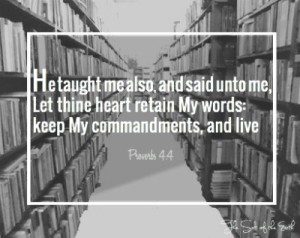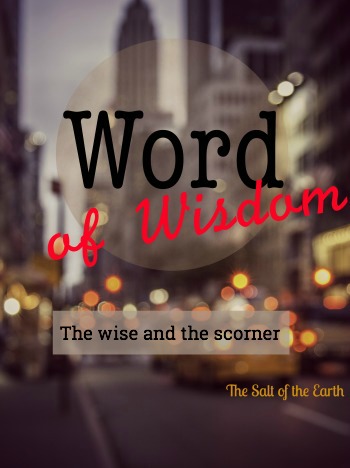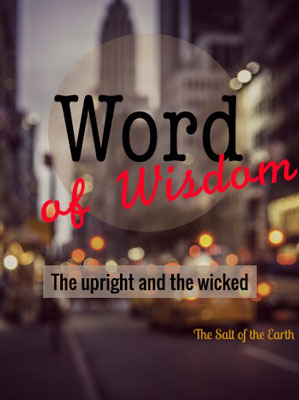He aha te tikanga o ngā Proverbs 10:17, He is in the way of life that keeps instruction: but he that refuses reproof erreth? What happens to a person, who keeps instruction and what happens to a person, who refuses reproof?
Are there no laws in the Kingdom of God?
He is in the way of life that keeps instruction: but he that refuses reproof erreth (Whakatauki 10:17)
When a believer and follower of Jesus Christ wants to grow up in His image, instructions and corrections (chastisement) are essential.
According to most Christians, you have been made free in Christ. Therefore keeping instructions and being corrected is not part of the New Covenant. When they hear the words instruction, correction, chastisement, or reproof, they immediately feel offended or discriminated, and they reject it. Many pious words are cited, like:
“That’s so religious, we have been freed from religion!”, “Don’t be so legalistic, it’s all grace”, “We live in the New Covenant, we are not under the law atu”, “You are not allowed to judge someone else”, “Consider the beam in your own eyes first, before you behold the mote in your brother’s eye”, “He that is without sin, cast the first stone”, “We are all sinners” And I can go on and on, with all these pious remarks (Panuitia hoki: He aha te tikanga, he that is without sin cast the first stone?).
Laws are necessary to prevent chaos
Laws, rules, and regulations are very normal in this world. A country, government, family, school, business, organization, sport, etc. all have rules and regulations. Without these rules and regulations (instructions), it would be one big mess. Rules and regulations are necessary to keep order, clarity, structure, and unity and prevent chaos.
As long as someone keeps instructions and lives by the rules and regulations, everything will be fine. But as soon as someone trespasses these rules and regulations, then there will be consequences. The person will be held accountable, for the mistake(s) (s)he has made.
The Law of the Spirit
The same thing applies to the spiritual realm and the Kingdom of God. In the Kingdom of God, there is one government and one law: the law of the Spirit. The law of the Spirit existed before the creation of this world and before Adam. This law still exists.
The law of the Spirit of life has not changed and will never change.
The Church is the representative authority of the Kingdom of God on earth. Therefore the Church shall live after the law of the Spirit and keep the instructions of the Word of God.
The law of the flesh versus the law of the Spirit
When you make Jesus Christ your Saviour and Lord and become born again in Christ, you will be transferred to another Kingdom; the Kingdom of God, where Jesus Christ reigns. A change of kingdom also means a change of law.
You have exchanged the law of the flesh (the law of sin and death), for the law of the Spirit (the law of the Spirit of life in Christ Jesus). This means that your life will change (Panuitia hoki: What is the secret of the law?).
You will no longer live according to what the world says and walk after the flesh, but you shall live according to what te Word says and walk after the Spirit.
You shall listen to Him and live after His commandments, His instructions, which apply in the Kingdom of God, whereby you shall walk according to the will of God and live in the will of God.
Someone, who keeps instruction is in the way of life
When a person becomes born again in the spirit, the person becomes a member of the Body of Christ. When the person becomes a member of the Body of Christ, (s)he should be discipled.
The person should be taught in the instructions of the Kingdom of God, so that (s)he can walk according to the instructions of the Word.
Through discipleship, the disciple will mature and grow up in the image of Christ.
During this process, (s)he will not only receive instruction, but also correction. But correction is not bad at all! Without instructions and corrections, a Christian will never mature and grow up in the image of Christ.
A child also needs to be instructed and corrected by the parents. That’s part of raising a child. A parent, who loves the child doesn’t want anything bad to happen to the child.
When a child keeps instruction, it shows that a child loves, obeys, trusts, and relies on the words and advice of the parents (Panuitia hoki: The lost child).
God wants to protect His children from evil
This also applies to Christians. God loves His children and wants to protect His children from evil. He doesn’t want something bad to happen to them. That’s why God gave us His instructions (commandments), to prevent us from being harmed.
When a believer receives instruction and correction, (s)he has two choices:
- The believer listens, accepts, keeps the correction, and applies it to his life
- The believer despises and rejects the correction, and will continue to do wrong
E kī ana te Word, that a person, who keeps instruction and receives correction, is in the way of life. The final destination of this way of life will be eternal life.
There are many exits on the path of life
But on the path of life, there are many exits. When a person despises and rejects the instruction, correction, and warning, (s)he shall err. (S)he shall be led astray and enter the path of unrighteousness, which won’t lead to eternal life, but to eternal death.
That’s why a person, who despises instructions and corrections, will walk in pride and shall err in life.
Instruction and correction (reproof) are necessary to keep the Church watchful and awake.
There are many deceptions around us, that can lead us astray from the path of life. Many times they are ‘hidden’ and believers don’t notice, that they slowly are being led astray. That’s why the members of the Body of Christ are there for each other. To keep each other awake, active, and alive.
When you give instruction, correction, and reproof someone, that doesn’t mean, that you are not walking in love anymore. On the contrary, when you instruct and correct and warn your brother or sister, you show him or her that you do love him or her. Because you don’t want anything bad, to happen to him or her (Panuitia hoki: What does it mean to love your neighbor as yourself?).
'Kia tote mo te whenua’



